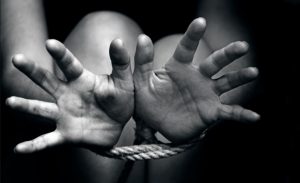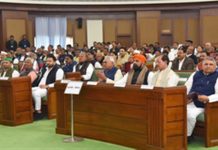 Civil society organisations have rebuked the passage of anti-trafficking Bill 2018 by the Lok Sabha on July 26. The Trafficking of Persons (Prevention, Protection and Rehabilitation) Bill, 2018, was introduced by Maneka Gandhi, Union Minister of Women and Child Development.
Civil society organisations have rebuked the passage of anti-trafficking Bill 2018 by the Lok Sabha on July 26. The Trafficking of Persons (Prevention, Protection and Rehabilitation) Bill, 2018, was introduced by Maneka Gandhi, Union Minister of Women and Child Development.
In a joint statement, they stated, “Various civil society representatives, labour unions, sex workers, activists, legal experts and human rights groups have condemned the Bill saying it was passed without scrutiny and examination which it desperately needs.”
The organisations have now urged the members of the Rajya Sabha to ensure that the Bill is “examined and evaluated and not hastily passed into law.”
The collectives of activists, lawyers, sex workers and transgender have been expressing concern over the lacunae in the Bill that in a manner undermine the rights and freedom of the stakeholders.
Passage of Bill
As touted, the comprehensive Bill that aims to prevent the peril of human trafficking focuses on the prevention, rescue and rehabilitation of the victims.
While presenting the Bill before the House, Union Cabinet Minister for Women and Child Development, Maneka Gandhi, said, “Human trafficking is a borderless crime. Special crimes need special attention. How can we stay silent when women and children are sold like goods. Let us make this Bill a reality today to protect and provide for the millions of victims who have suffered silently for years.”
Assuring that the Bill would incorporate missing points Gandhi said, “I assure that all the concerns of the members, if not addressed already in the anti-trafficking Bill 2018, will be incorporated in the rules.”
“This Bill is not intended to harass those social workers who are voluntarily in the profession… This is a Bill that has a compassionate view of people who have been victims of sex racket.”
Taking on the Bill presented by Gandhi, Congress MP Shashi Tharoor made remarks that the government is confused between the terms ‘persecution’ and ‘prosecution.’
Throwing light on the rights of the sex workers, Tharoor said, “Section 370 of the IPC is used extensively against sex workers in conjunction with Immoral Traffic (Prevention) Act 1956 (ITPA) and there are numerous instances in which the police have threatened sex workers under this section, demanding bribes and even sex.”
Making a point on the rehabilitation funds, Tharoor said, “The trafficking Bill establishes a rehabilitation fund for victims of trafficking, but only Rs.10 crores has been allotted for it, whereas the government has spent Rs.4,343 crore on publicity since it came to power in May 2014. “
Gandhi made attempt to defend her stance on the legislation. In a reply to Tharoor, she said the House has received comments from two groups, one representing the victims and the other representing the sex workers.
“Tharoor represents the second group,” she said.
Recently, Tripti Tandon, Advocate and Deputy Director, Lawyers Collective, pointed out, “Those who have been involved in drafting the Trafficking Bill, which otherwise was an opaque and closed process, such as Kailash Satyarthi’s Bachpan Bachao Andolan and Sunita Krishnan of Prajwala are bound to give full marks to it. But, if they are so confident of it, why should they oppose it being sent to a Standing Committee in Parliament? After all, scrutiny by a Parliamentary body will only improve the legal response to trafficking and not weaken it. Supporters of the Bill must have faith in democratic processes and Parliamentary institutions.”












